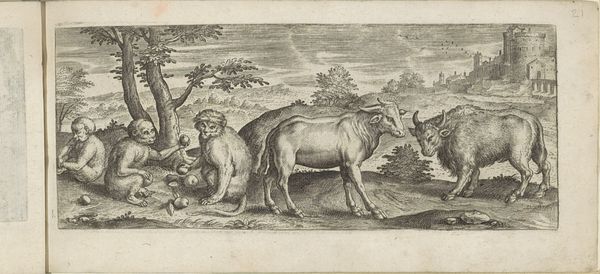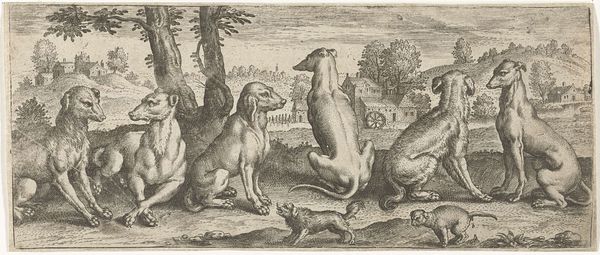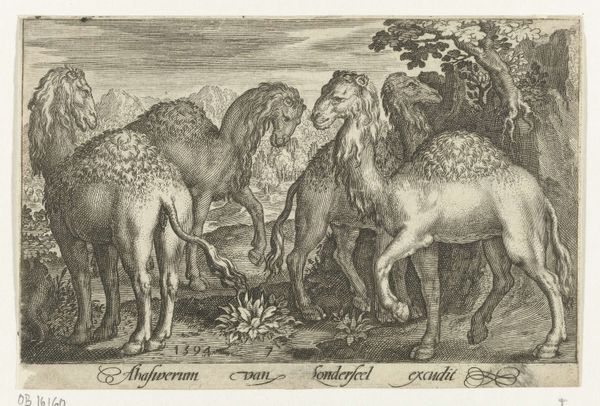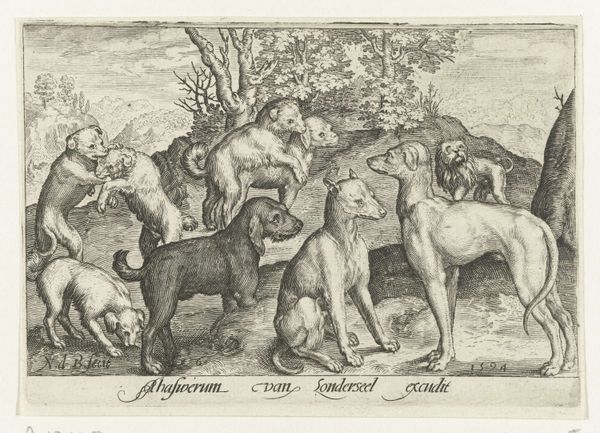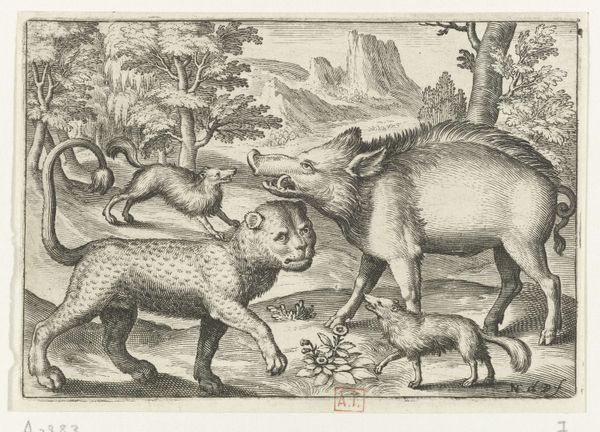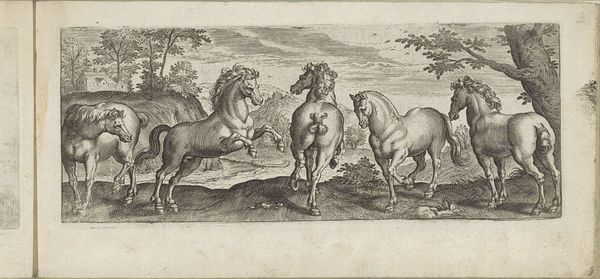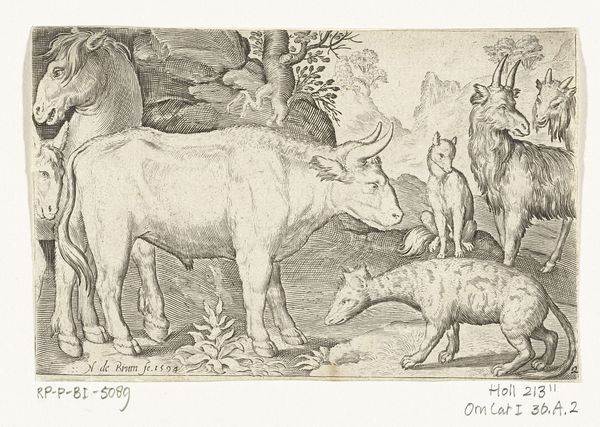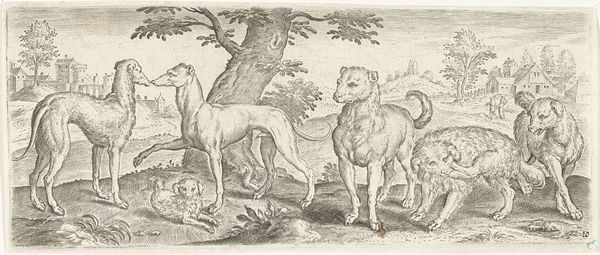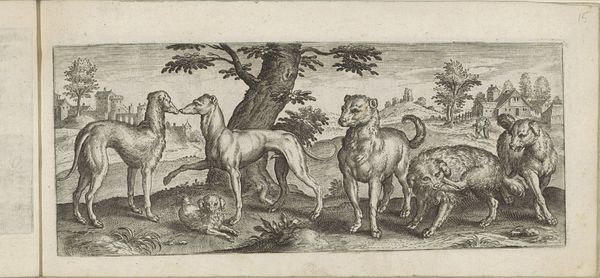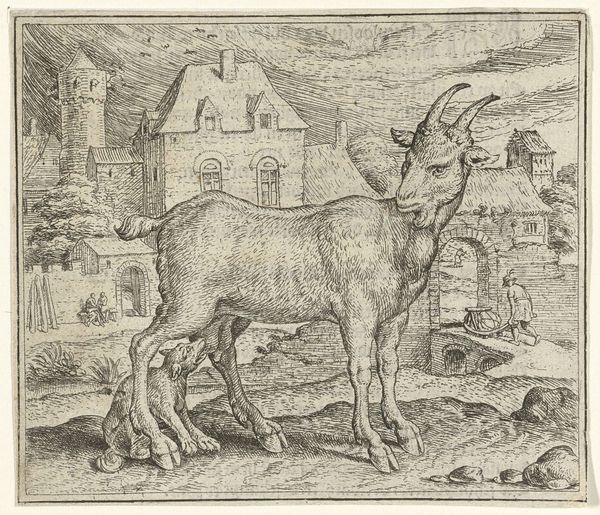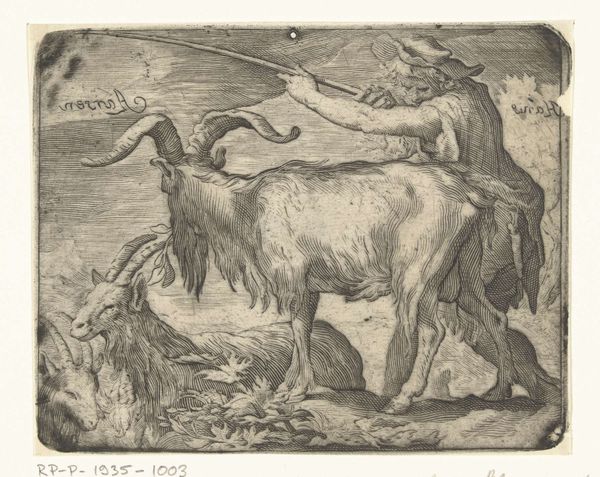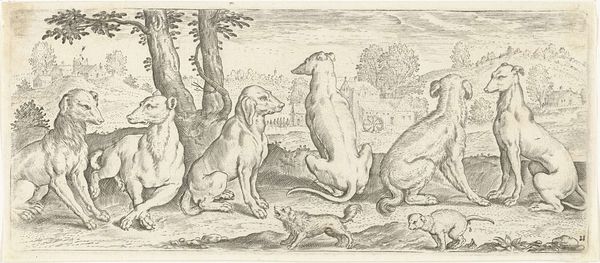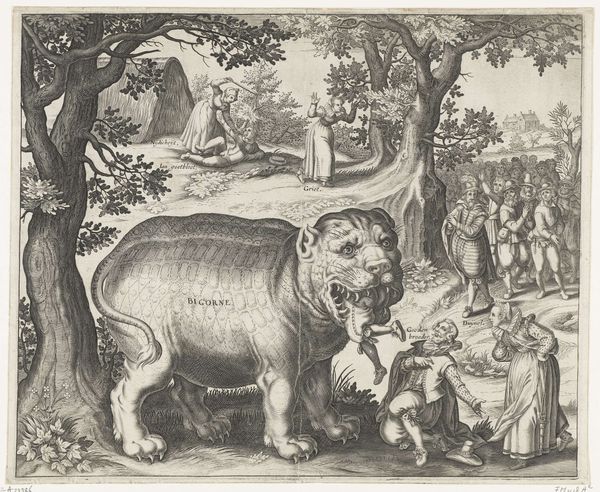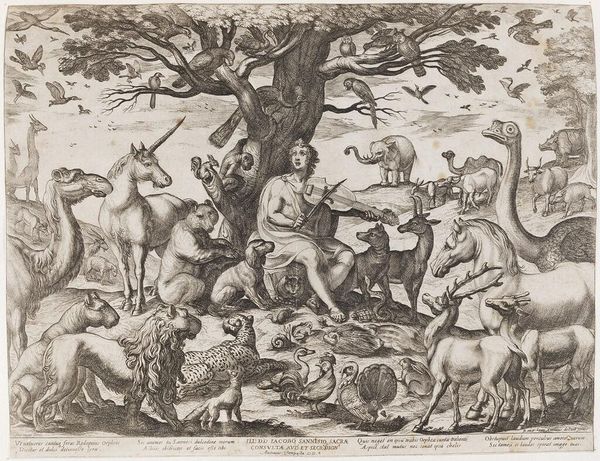
print, engraving
#
narrative-art
#
animal
#
dutch-golden-age
# print
#
old engraving style
#
landscape
#
figuration
#
genre-painting
#
engraving
Dimensions: height 88 mm, width 128 mm
Copyright: Rijks Museum: Open Domain
This engraving by Nicolaes de Bruyn, made around 1594, presents us with a striking assembly of animals: horses, a bull, goats, foxes, and a hyena. The hyena, positioned prominently, carries a weight of historical significance, and in antiquity, was often associated with death, necromancy, and the plundering of graves. Interestingly, in some cultures, the hyena was thought to be hermaphroditic, embodying a duality and ambiguity that stirred both fascination and fear. This belief in the hyena’s dual nature can be traced back to ancient texts, where it was depicted as shifting between male and female forms, adding to its mystique as a creature of transformation and deception. Consider, too, the juxtaposition of the bull, a symbol of strength and virility, alongside this creature associated with death. The emotional impact of this image lies in its ability to tap into our collective subconscious, where primal fears and cultural beliefs intertwine. Just as these animals coexist in this scene, so too do life and death, creation and destruction.
Comments
No comments
Be the first to comment and join the conversation on the ultimate creative platform.
